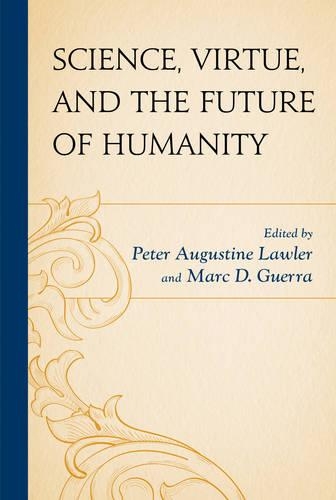
Science, Virtue, and the Future of Humanity
(Paperback)
Available Formats
Publishing Details
Science, Virtue, and the Future of Humanity
By (Author) Peter Augustine Lawler
Edited by Marc D. Guerra
Contributions by Ronald Bailey
Contributions by James C. Capretta
Contributions by J. Daryl Charles
Contributions by Patrick J. Deneen
Contributions by William English
Contributions by Marc D. Guerra
Contributions by Benjamin Hippen
Contributions by Adam Keiper
Bloomsbury Publishing PLC
Lexington Books
14th November 2016
United States
Classifications
Professional and Scholarly
Non Fiction
660.6
Physical Properties
Paperback
228
Width 151mm, Height 229mm, Spine 15mm
336g
Description
Science, Virtue, and the Future of Humanity addresses each of the key public policy issues of our techno-future from the perspective of deeply informed and philosophically inclined public intellectuals. Among the issues addressed are the detachment of our idea of justice from any credible foundation; Tocquevilles prescience on how a cognitive elite might be the aristocracy to be most feared in our time; robotization and the possibility of being ruled by morally challenged robots; organ markets; the degradation of liberal education by obsessive techno-enthusiasm; biotechnology and biological determinism; the birth dearth and the inevitable erosion of our entitlements; the possibility that our techno-domination is basically an unfolding of the Lockean logic of our foundation; and the future of the free exercise of religion in an aggressively libertarian time. All in all, this book should provoke widespread discussion about the relationship between scientific/technological progress and the one true moral/spiritual progress that takes place over the course of every particular human life.
Reviews
This is a book about the futurethe future of liberty, love, and learning in a scientific age. Ranging from the techno-utopian to the techno-wary, the authors explore the possible shape of the world to come. Can we expect an unbounded, creative future Or is it true, as Abraham Lincoln said, that This is a world of compensations, a world where both human and cosmic nature (not to mention divine justice) set limits and establish relations that have a logic all their own If even robots need morality, as the AI theorists are beginning to realize, then we really are stuck with virtue. This insightful and eloquent collection helps us think more deeply about permanence in the midst of change. -- Diana J. Schaub, Loyola University Maryland
Author Bio
Peter Augustine Lawler is Dana Professor of Government at Berry College. Marc D. Guerra is associate professor and chair of theology at Assumption College.
